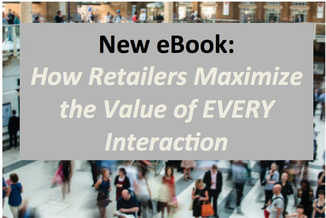It’s no secret that technology continues to outpace even the nimblest marketing plans. So how do we outsmart smart homes and stay relevant to consumers? I sat with our CEO Michael Caccavale to discuss.
Gary Satterfield and I go way back. We met while I was working on a marketing research project for Gary twenty years ago at a utility. And he’s since gone on to become an expert in the retail energy space and was kind enough to sit down with me and my team to talk shop. The topic of deregulation, removing restrictions in a particular industry, ran a thread through much of our conversation. This has implications for consumers – and therefore, marketers.
As marketers – and as consumers – connecting the dots between previous and future behavior is the key to appreciating a good offer when we see one. And today, that’s not as simple as recommending a fun pair of boots after I bought designer jeans. With our offices, mobile devices, and homes all connected and talking to each other, being on time and on message is increasingly complicated. I recently sat down with our CEO Michael Caccavale to talk about the challenges and opportunities that marketers can uncover when we look at the smart home market.
Smart grids and domestic alternative energy production are changing the rules of engagement between energy customers and their suppliers. At the same time, deregulation and a new set of diverse domestic digital media service providers entering the market demand broader and more intelligent marketing strategies. These changes create instability in a market that has been stable for many years. It forces the suppliers, particularly the energy suppliers, to abandon business practices that have long been serving them and adopt a more flexible and agile growth model, an uncomfortable position, particularly for the larger organizations in the sector.
It used to be that the household electric bill was a simple recurring monthly statement. Regulation gave customers confidence that they were being charged a fair price for their energy. The monthly price fluctuated in a predictable way. Customers got into the habit of setting up a recurring direct debit from their payment account and then not really thinking about it again. But forces are at work now that are causing household energy consumers to pay more attention to the details on their bill and to sense the fluctuations more acutely. So, don’t think your customers aren’t paying attention to the electric bill. Your customers are actually getting increasingly interested in the details of their bill.
Consumers are adopting disruptive technology at an accelerating rate and this is changing their behavior. Energy companies, historically slow in responding to changes in consumer behavior, reluctant to invest in consumer analytics systems, and unprepared to take advantage of their own customer data, are at a disadvantage. Energy companies must review their marketing strategies and develop their digital assets in anticipation of a changing competitive landscape and evolving customer expectations.







